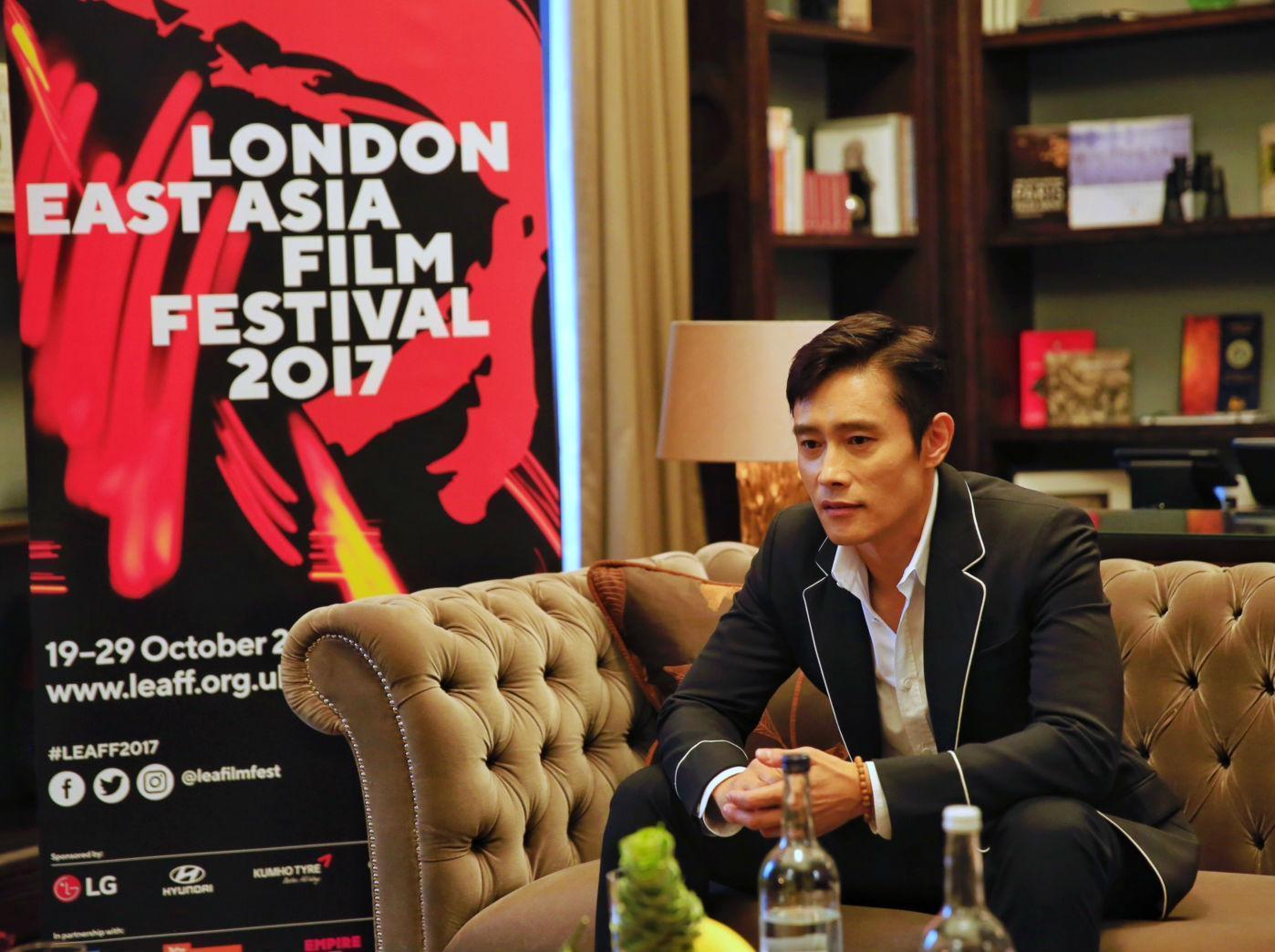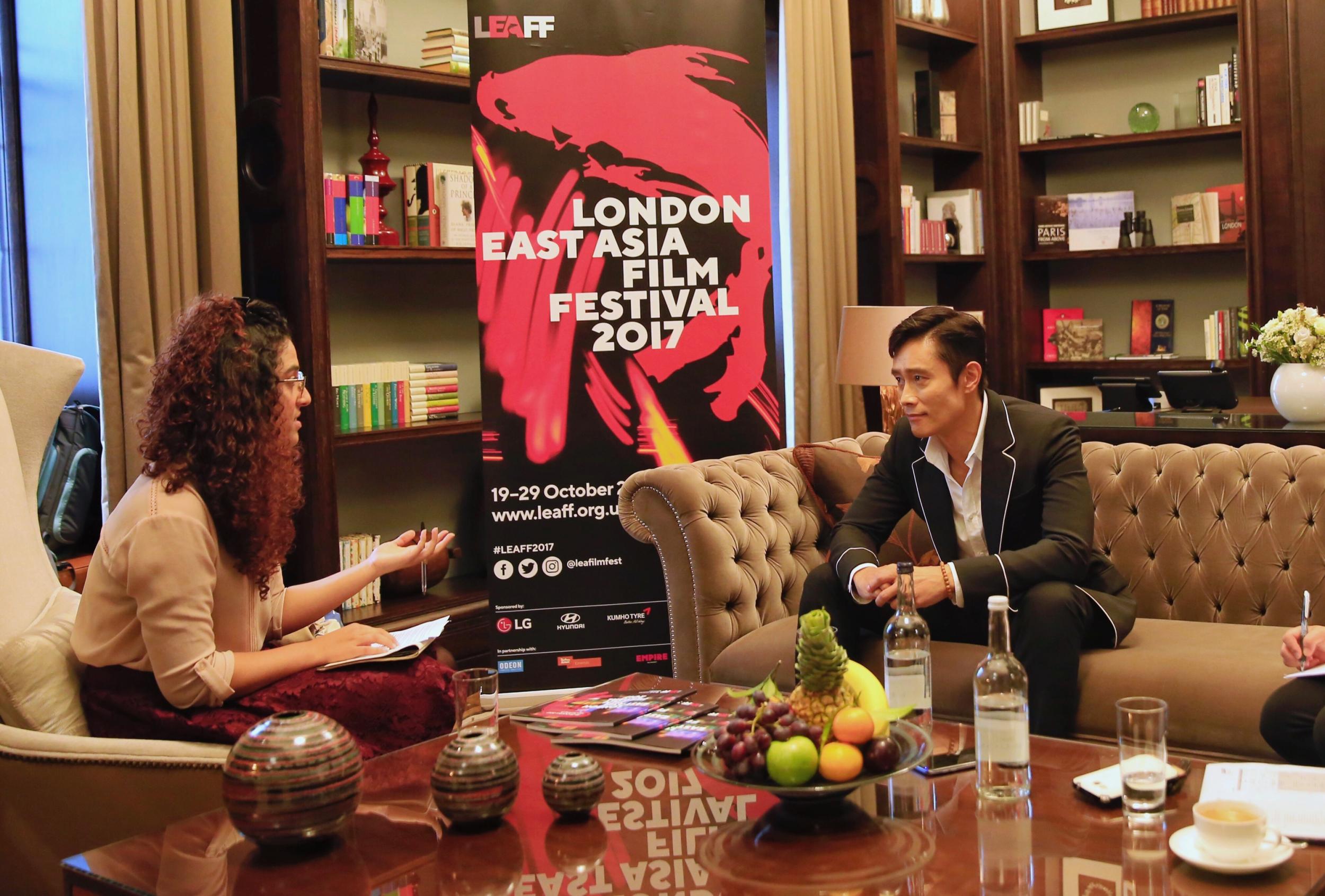Lee Byung-hun interview: Korean actor on his role in The Fortress, whitewashing and navigating Hollywood
Exclusive: ‘My spectrum as a Hollywood actor grew, and in G.I Joe: Retaliation I was given more screen time and more to say’

Korean actor Lee Byung-hun looks immaculate in a dark suit as he sits comfortably across the sofa from me. “I just arrived last night,” he says, but you wouldn’t be able to tell this from his lively demeanour. The Korean actor was invited by the London East Asia Film Festival (LEAFF) to attend the international screening of his new epic period drama, The Fortress, at the Odeon Leicester Square.
The Korean actor is unique amongst his peers: he has his feet planted firmly between Hollywood and the Korean film industry; as an Asian actor he has broken through the glass ceiling and played a number of key roles in American films: Han in Red II, Storm Shadow in both G.I Joe films and the coveted role of the T-1000 Terminator in Terminator Genisys.
“It was a wonderful opportunity,” he tells me of the roles he was offered in American cinema. “My spectrum as a Hollywood actor grew, and in G.I Joe: Retaliation for example, I was given more screen time and more to say. I thought ‘the studios are testing me’.”
“Korean film sets are different from those in America,” he adds, “the crew in Korea is more ready for last minute spontaneous changes from the director. In that way the director has more power.
“In America, if the director wants to make any changes, he has to keep the needs of the studio and the needs of the sponsors in mind.”
However, Lee admits that the way films are created in Korea is changing to better reflect the American model, which he doesn’t believe is a bad thing. “Crew members will sometimes work 12-hour shifts [in Korea].” He believes that changing to the American system will support those working behind the scenes of a film.

The topic of ‘whitewashing’ has recently come to dominate discussions about Hollywood cinema: the live action adaptation of Ghost in the Shell came under fire for its casting of Scarlett Johansson in a role traditionally believed to be Asian and, commenting on that, Lee was adamant that “whitewashing is a no”. The lack of diversity in Hollywood however, “isn’t just an Asian problem”, and in fact impacts all ethnicities, including “African American actors”.
“The conversation is happening now, which is better than when people didn’t realise it was a problem.”
“We are in the transitional stage,” he adds.
Lee’s quietly intense affectation is precisely why director Hwang Dong-hyuk cast him in the role of one of the ministers in The Fortress. In the film his character argues for surrendering to the Qing dynasty’s forces in Korea’s most infamous siege in history.
He said: “[Lee Byung-hun] is consistent and calm, and I needed somebody who could add subtle changes to the character. [In the film] his face is covered a lot, and I needed an actor whose eyes can convey the character’s feelings. Lee was that actor.”
The film features King Injo, a notorious king in Korean history who the director says has often been compared to Park Geun-hye, the recently impeached former President of South Korea.
“She is kind of like Injo. Incompetent. Helpless. What’s happening in Korea now is the same,” he says, “This is a reflection of reality. Now it’s the country names that have changed.”
Some film critics have suggested that the film is in fact about nationalism. Lee disagrees. “If you ask anyone who worked on the film, none would have said that it is about nationalism. It’s about what is happening in Korea now.”
LEAFF was founded by festival director Hyejung Jeon. The festival runs until 29 October and you can see a list of the films which will be screened in London, on the website
Join our commenting forum
Join thought-provoking conversations, follow other Independent readers and see their replies
Comments
Bookmark popover
Removed from bookmarks